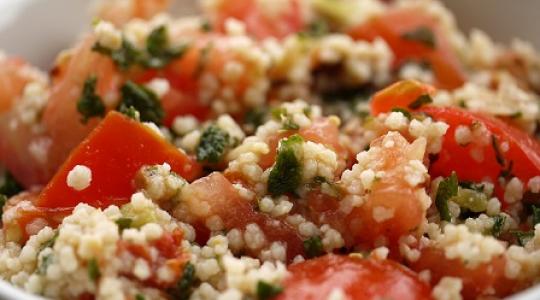
PLANT-BASED PRACTICE: Because the closer we are to eating a complete whole food, plant-based diet, the less risk for overweight and disease, choose fiber-filling whole plant foods such as whole vegetables, fruits, grains and legumes (beans) and minimal amounts of nuts and seeds, and use minimally processed foods such as plant milks, tofu, whole grain cereals, pastas and sauces. Incorporate salads and greens into daily meals, choose oat or whole grain porridge for breakfasts, and take a vitamin B-12 supplement.
Maintaining a healthy weight is a massive challenge for anyone living in the U.S. today, and it becomes even harder to do when you cannot engage in rigorous exercise. This is the situation for many people who have mobility challenges and are more at risk for the problems caused by weight issues. Overweight and obesity carry numerous implications for poor health – increased risk of type 2 diabetes, heart disease, cancer, sleep disorders, as well as poor energy levels.
Achieving a healthy weight is so difficult in the modern food environment because the excess of calorie-dense food and processed food makes it almost impossible not to overeat. The stomach is capable of holding roughly 500 calories of food, if we’re talking about whole, plant-based foods. As we increase the amount of animal foods or processed foods (processed food usually has had the fiber stripped) eating until our stomach is full means a LOT more than 500 calories. This is how the modern food environment leads people to overeat – we have way too much food available to eat all that time that in a natural environment would have been a rare occurrence (or might have never existed, such as sugar and oil).
To find out how many calories are in the foods you are eating, visit the USDA Nutrient Database. Take a look at the calorie content of some of these various foods:
|
Food |
Volume/Portion |
Calorie Content |
|
Vegetables, Fruits, Grains, Legumes |
||
|
Red Leaf Lettuce |
1 cup, shredded |
4 kcal |
|
Kale, cooked |
1 cup |
36 kcal |
|
Apple |
1 cup, chopped |
65 kcal |
|
Butternut Squash, baked |
1 cup |
82 kcal |
|
Banana |
1 cup, sliced |
134 kcal |
|
Brown Rice, cooked |
1 cup |
218 kcal |
|
Quinoa, cooked |
1 cup |
222 kcal |
|
Black Beans, cooked |
1 cup |
227 kcal |
|
Chickpeas, cooked |
1 cup |
269 kcal |
|
Animal and Processed Foods |
||
|
Bacon |
225g ~ 1 cup |
416 kcal |
|
Ground Beef |
8oz ~ 1 cup |
530 kcal |
|
Cheese |
1 cup, melted |
983 kcal |
|
White Sugar |
1 cup |
774 kcal |
|
Oil |
1 cup |
1980 kcal |
Do you have to give up all animal food and all processed food? Everyone must make a personal choice for themselves, but scientific research indicates that the closer we adopt a whole food, plant-based diet, the more our risk for all chronic disease drops too. At the same time, we don’t have evidence that 100% plant-based is necessary. Conveniently though, if you do eat a whole food, plant-based diet, you will naturally get the right amounts of all protein, fat, carbohydrates and micronutrients you need without even trying (with the possible exception of Vitamin B12).
People who are not physically active will have much less leeway to eat calorie dense food without gaining weight than people who are mobile or athletic.
The more you stick to whole, plant-based foods with only small amounts of nuts and seeds, the greater chance you’ll have at achieving your ideal weight. What counts as a whole, plant food? Anything that came out of the ground and wasn’t changed by the food industry. It will contain generous amounts of fiber that will fill your stomach.
This is why eating a whole food, plant-based diet allows you to eat until you are full every time without counting calories or worrying about portion size! You can go back to what feels natural – eating when you’re hungry and stopping when your stomach is full of food.
PLANT-BASED PRACTICE: Because the closer we are to eating a complete whole food, plant-based diet, the less risk for overweight and disease, choose fiber-filling whole plant foods such as whole vegetables, fruits, grains and legumes (beans) and minimal amounts of nuts and seeds, and use minimally processed foods such as plant milks, tofu, whole grain cereals, pastas and sauces. Incorporate salads and greens into daily meals, choose oat or whole grain porridge for breakfasts, and take a vitamin B-12 supplement.
Maintaining a healthy weight is a massive challenge for anyone living in the US today, and it becomes even harder to do when you cannot engage in rigorous exercise. This is the situation for many people who have mobility challenges, who are more at risk for the problems caused by weight issues. Overweight and obesity carry numerous implications for poor health – increased risk of type 2 diabetes, heart disease, cancer, sleep disorders, as well as poor energy levels…